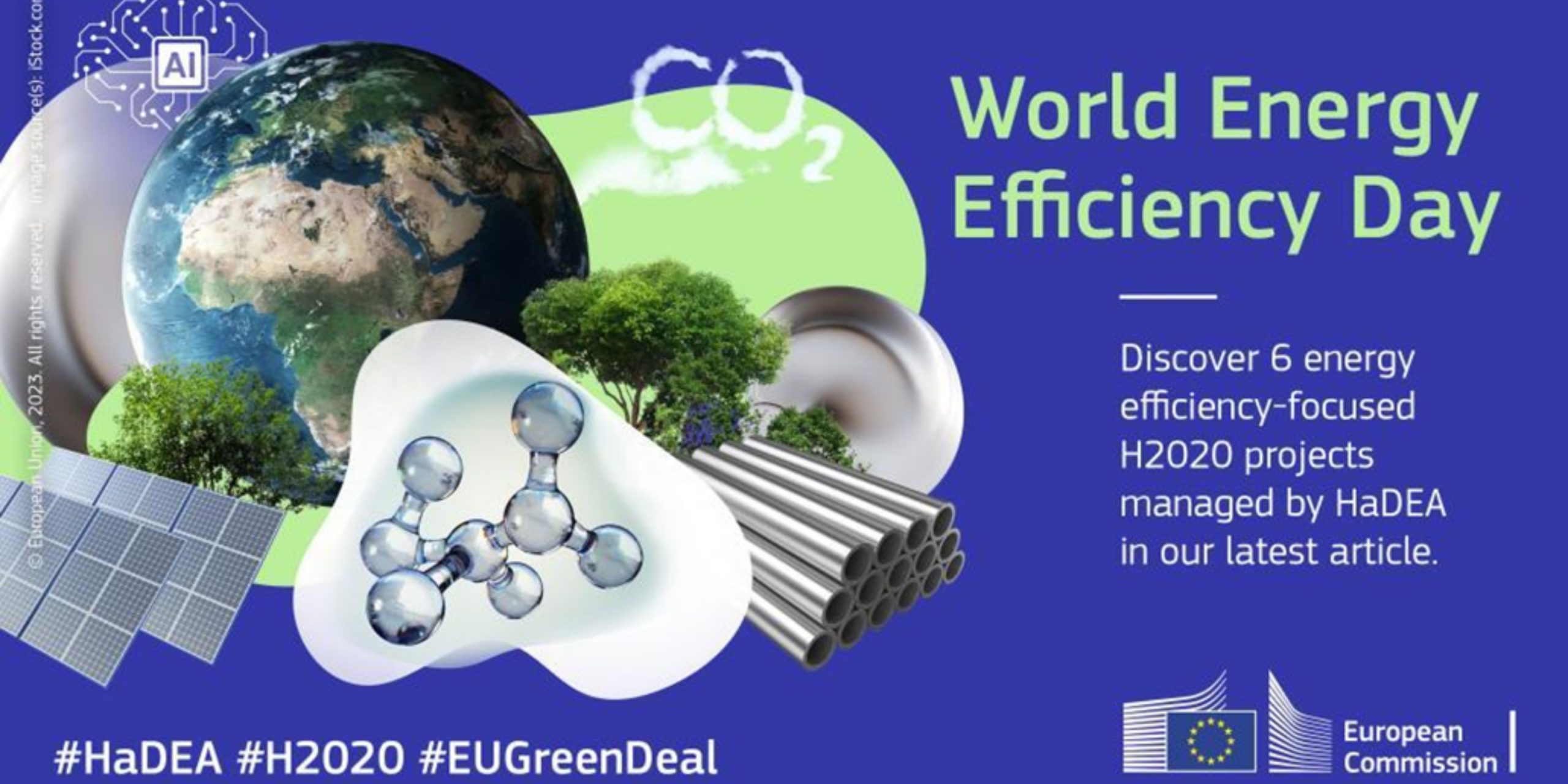The objective of World Energy Efficiency Day, celebrated annually on 5 March, is to raise awareness about the need to reduce energy consumption through reasonable and sustainable energy use.
Energy intensive industries will require a radical transformation of their production processes to reach carbon neutrality by 2050.
HaDEA-managed projects developed solutions that demonstrated:
- energy efficiency improvements of the target production/operation processes of at least 30%;
- reduction of CO2 emissions and resource utilisation of 20%;
- increased lifetime of the equipment by at least 20%.
Overview of projects
- CEM-WAVEproposes an innovative Ceramic Matrix Composites production process based on microwave-assisted chemical vapour infiltration technologies. The project will rely on AI modelling research and develop advanced joining and coating technologies to produce complex-shaped components with high-temperature corrosion resistance.
- ACHIEFwill design and develop innovative high-temperature strength and creep resistance materials and protective coatings with improved high-temperature performance and corrosion features.
- HIPERMAT’s objective is to equip low carbon technologies with new materials and components. New bulk refractory stainless steels, high entropy alloys and ceramic coatings will be developed through advanced modelling, hidrosolidification, LMD and ceramic coatings in new beam and ring prototypes with embedded sensors in a hot stamping furnace.
- TopAMwill develop new processing routes to create oxide dispersion-strengthened alloys that consist of a metal matrix (FeCrAl, Ni and NiCu) with small oxide particles dispersed within. The alloys will be produced as powders for additive manufacturing and will offer a competitive advantage to the process industry.
- COMPASsCO2will integrate solar energy into sCO2 Brayton cycles for electricity production. The project will design, test and model tailored particle-alloy combinations able to face the extreme operating conditions linked to temperature, pressure, abrasion, oxidation and corrosion during the lifetime of a solar plant.
- FORGEwill develop novel coatings of compositionally complex alloys and ceramics, combining machine learning models, thermodynamic calculations, and high-throughput experiments.
Source: European Commission | News (https://bit.ly/3SNbHdz)
